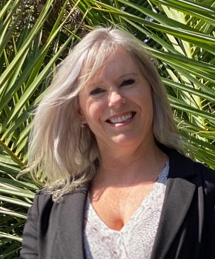Q: We have a property in St Ives that is our main residence, and we have an investment property on the beach at Mona Vale. At present, we are thinking of moving to our beach property for a year and renting out the St Ives property.
I’m assuming that at that point we can’t negatively gear or have any other tax benefits on the beach property. But does this open our main residence up to capital gains tax?
Regards, Tom
A: Generally, dwellings cease to be your main residence when you move out. However, you can choose to continue treating a dwelling as your main residence for capital gains tax (CGT) purposes for up to six years after you vacate, even if it is used to produce income.
Sounds too good to be true? Well, yes and no. The ATO allows this, but the catch is that you can only have one main residence at any given point in time.
So, when you move to Mona Vale and rent St Ives, you can still choose to have the St Ives property treated as your main residence for up to six years. If you choose to claim St Ives as your main residence, then Mona Vale cannot be claimed as a main residence and full CGT will continue to apply to that property.
The choice comes down to which property is likely to have the higher gain when it is eventually sold. For example, if the St Ives property does not go up in value during the period that you are living in Mona Vale, but Mona Vale does, then you may be better off claiming Mona Vale as your main residence during that period. Alternatively, if the Mona Vale property does not go up in value but the St Ives one does, then you are better off claiming your St Ives property as your main residence.
The choice of which property to treat as your main residence comes down to which is likely to have the higher gain when sold
Let’s look at an example.
To keep the maths simple, let’s say that St Ives is worth $1m when you move to Mona Vale and Mona Vale is also worth $1m. Six years later you decide to sell St Ives and it has gone up in value to $1.5m, thus there is a $500,000 capital gain to contend with.
Let’s also say that during those six years Mona Vale has only gone up in value to $1.2m, meaning only a $200,000 capital gain. In this case you would want to claim St Ives as your principal residence for the previous six years.
On the other hand, if Mona Vale has gone up to $2m, then you would not want to claim the exemption on St Ives and would instead treat Mona Vale as your main residence, as the gain on Mona Vale during the six-year period would be much higher than the gain on St Ives.
There are many possible scenarios, so my advice is to keep very good records and get a valuation of both properties at the time that you move to Mona Vale. This will ensure your accountant has the information they need to be able to calculate the gains on each property and advise you accordingly.
Need to know
- A rented property can remain your main residence in certain circumstances.
- You can choose to treat the property with a greater gain on sale as your main residence.
- Getting a valuation done on your properties will help you make an informed decision.
 Catherine Smith
Catherine Smith
is CEO of Wholistic Financial Solutions
If you would like your tax question answered in our magazine or on our website, please email your question to: editor.yipmag@keymedia.com.au
